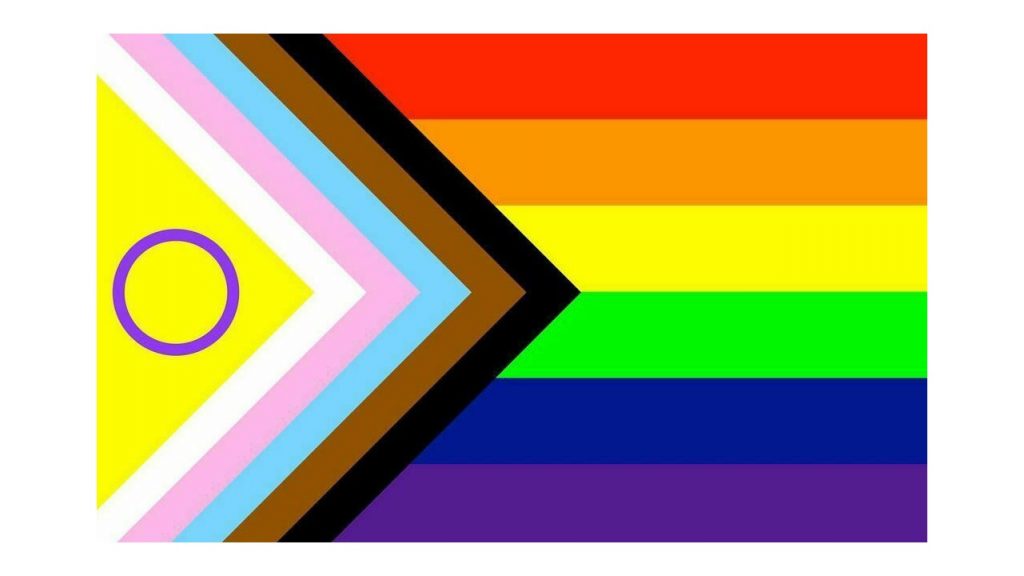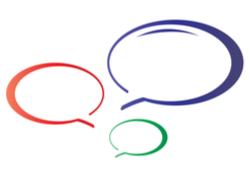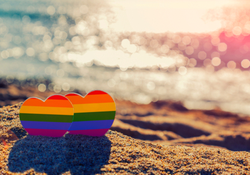by Rebecca Gitlin, Ph.D. (she/her), Clinical Psychologist & LGBTQ+ Services Specialist
 March is an important month for celebrating sexual and gender diversity. Many of us are already aware of Women’s History Month. March is also regarded as Gender Equality Month, which serves as a call to celebrate the history, contributions, and wellness of community members who are impacted by gender-based bias and oppression. We honor and uplift the livelihoods of all femmes, transgender and non-binary people, and women and girls this month and year-round.
March is an important month for celebrating sexual and gender diversity. Many of us are already aware of Women’s History Month. March is also regarded as Gender Equality Month, which serves as a call to celebrate the history, contributions, and wellness of community members who are impacted by gender-based bias and oppression. We honor and uplift the livelihoods of all femmes, transgender and non-binary people, and women and girls this month and year-round.
March is also Bisexual+ Health Awareness Month. While overall health-related inequities among lesbian, gay, bisexual, transgender, queer, intersex, asexual, and Two-Spirit (LGBTQIA2-S) communities are fairly well known, bisexual+ individuals (including those who are bisexual, pansexual, queer, and/or fluid) experience particularly elevated disparities in health outcomes and social determinants. This is related to the invisibility and/or dismissal of bisexual+ identities and lived experience within many communities and spaces in our society, including within healthcare institutions. The theme of Bisexual+ Health Awareness Month 2022 is Connection, which emphasizes the importance of bisexual+ community members’ connecting with each other and with affirming healthcare services.
March 21-25 also marks the 20th National LGBTQ Health Awareness Week. This year’s theme is Live Out Loud for LGBTQ Health and encourages all of us to speak openly about LGBTQIA2-S health, barriers and gaps within our system of care, and community strengths that elevate the wellbeing and beauty of a sexually and gender diverse Los Angeles County.
Finally, March 31 is International Transgender Day of Visibility. Founded in 2009 by Michigan-based transgender activist Rachel Crandall, Transgender Day of Visibility (TDOV) uplifts the livelihood, resilience, and accomplishments of transgender people. TDOV also serves as a call to action to take the necessary steps to foster a safe and affirming world for people of all gender identities. When we celebrate the existence and survival of transgender, gender non-conforming, and intersex (TGI) people, we collectively recognize community members who are often dismissed or rejected. In doing so, we aim to reduce stigma, offer hope, and raise awareness about the lived experiences of TGI people.
As we honor the visibility and awareness of LGBTQIA2-S communities this month, we must also acknowledge that it is not safe for many people to live openly as their authentic selves. Indeed, visibility can be associated with increased vulnerability for many, as community members experience discrimination, harassment, and violence in response to their actual or perceived sexual and/or gender identity. BIPOC transgender women and gender nonconforming people, in particular, are disproportionately targeted in acts of anti-transgender hate and violence.
We know that affirming a person’s authentic identities is itself an effective healing practice that can reduce health disparities and promote community wellbeing. This month and all year, we invite you to join us in transforming our society and healthcare institutions into more welcoming, diverse, and equitable spaces for everyone.




